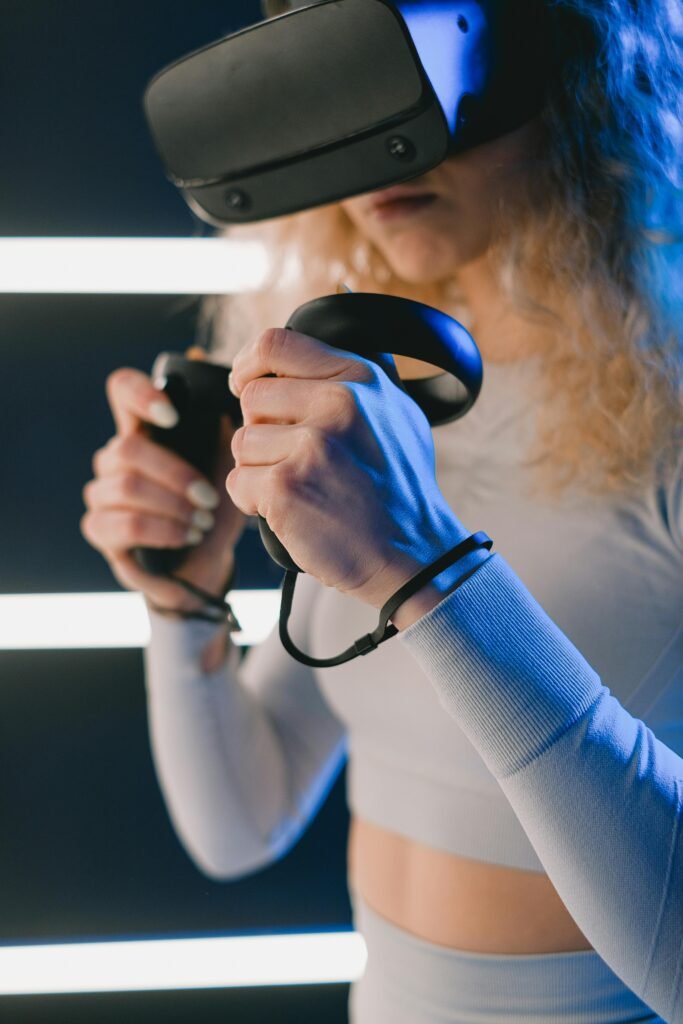The gaming industry is undergoing a serious and rapid transformation. With major changes driven by cutting-edge advancements in technology. Virtual reality (VR) is just one of those at the forefront of popular development, with the biggest brands and names in the business using it in their work.
Current games only reveal the tip of the iceberg when it comes to the potential of these technologies. Below, we’ve covered just a few of the possibilities.

Mobile VR
Handheld devices are an integral part of daily life. From mobile phones to miniature consoles like the Nintendo Switch, it’s now possible to find a VR headset that’s compatible with almost any popular gadget.
The integration of VR technologies with mobile devices makes for an immersive gameplay experience that’s unique for every user.
With more convenience and accessibility than any other gaming platform, mobile VR gaming can easily and readily facilitate social interactions, gaming on the move, and a sense of community.
VR in online casinos
In the online gambling industry, virtual reality is emerging as one of the most popular mediums for immersive casino environments.
It gives players the ability to interact with dealers and other players in virtual spaces, making for an intense gameplay experience. Appealing colours, textures and graphics in classic casino games like roulette are enhanced and intensified through virtual reality headsets.
There are some technological barriers that could delay the transition from traditional casino formats. These include costly hardware and the requirement for a stable high-speed internet connection. Responsible use is still a key concern in virtual gambling environments.
Worldwide development
Leading games companies including HTC, Magic Leap and Epic Games are all developing VR integration across varying formats. In the UK, startups like Oxford VR, Poplar Studio and Ultraleap are all paving the way towards faster, better, and more accessible VR commodities in gaming and beyond.
Challenges and considerations
VR gaming comes with some limitations. These are unavoidable and may be the dealbreaker for some gamers, but others are eager to pursue VR for its unparalleled immersion.
A few of the technical drawbacks include:
- Processing power: Enhanced VR experiences require huge processing power, which may lead to higher costs for hardware – and potential performance issues.
- Comfort: Players who use VR headsets for extended periods can experience discomfort, including motion sickness, eye strain, and limited session length.
- Accessibility: VR headsets come at a high price upfront, which may exclude some players.
Beyond the technical limitations of VR gaming, industry critics have some social concerns too. VR gaming can become addictive quickly, potentially causing problems for more vulnerable players. Furthermore, excessive play can sometimes mean that players become socially isolated.
Wrapping up
There’s strong potential for further innovations in VR and mobile gaming. However, if this technology is set to become the norm, the ethical implications need to be carefully considered. New features, including the integration of haptics with VR, will present both opportunities and challenges.
To read more, Click Here